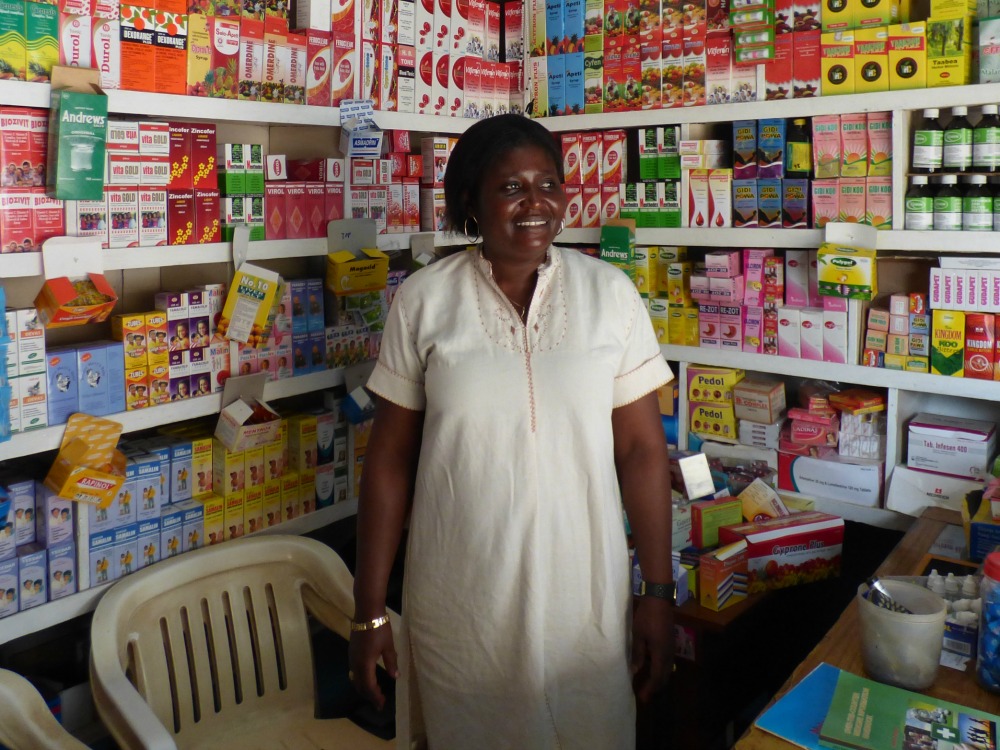Report shows pharmacy regulations vary widely; trend toward licensing lower-tier drug shops

Globally, there is widespread variation in regulations for private pharmacies and drug shops, important sources of family planning and other priority health services in many countries. SHOPS Plus published a new report on the policies, laws, and regulations that govern how pharmacies and drug shops operate and what modern family planning methods they can provide in 32 USAID priority countries. Pamela Riley, co-author of the report, presented the findings in IBP’s High Impact Practices webinar series in July. The webinar examined evidence showing that, with appropriate training and support, staff at these facilities can facilitate the use of modern contraception, especially in urban slums and rural areas.
As drug shops and pharmacies are often clients’ first contact with the health system, they are an important channel for contraceptive access, and family planning practitioners need to understand the regulatory environment that shapes their scope of service.” – Pamela Riley, Digital Health Advisor, SHOPS Plus
Through a desk-based review, key informant interviews, and a consultative workshop, the report looked at laws and regulations pertaining to retail pharmacies and drug shops not affiliated with medical clinics. The report identified policy trends and outliers within a range of regulatory approaches.
General findings
- Regulations for drug shops and pharmacies are not standardized.
- There is a significant trend toward licensing lower-tier drug shops.
- A small and growing number of countries allow drug shops to sell some prescription medicines found on the national essential medicines list.
- The minimum education and training rules vary widely for drug shop personnel.
Family planning findings
- Contraceptives are well represented on national essential medicines lists.
- Pharmacies, and in some countries drug shops, are permitted to sell depot medroxyprogesterone acetate (DMPA) but are prohibited from providing injections.
- Sales of oral contraceptive pills are permitted without prescription at both drug shops and pharmacies in 15 of the 32 countries.
Download the report to learn more about the review, including detailed highlights of nine countries with ongoing donor-funded initiatives.
View the webinar recording.